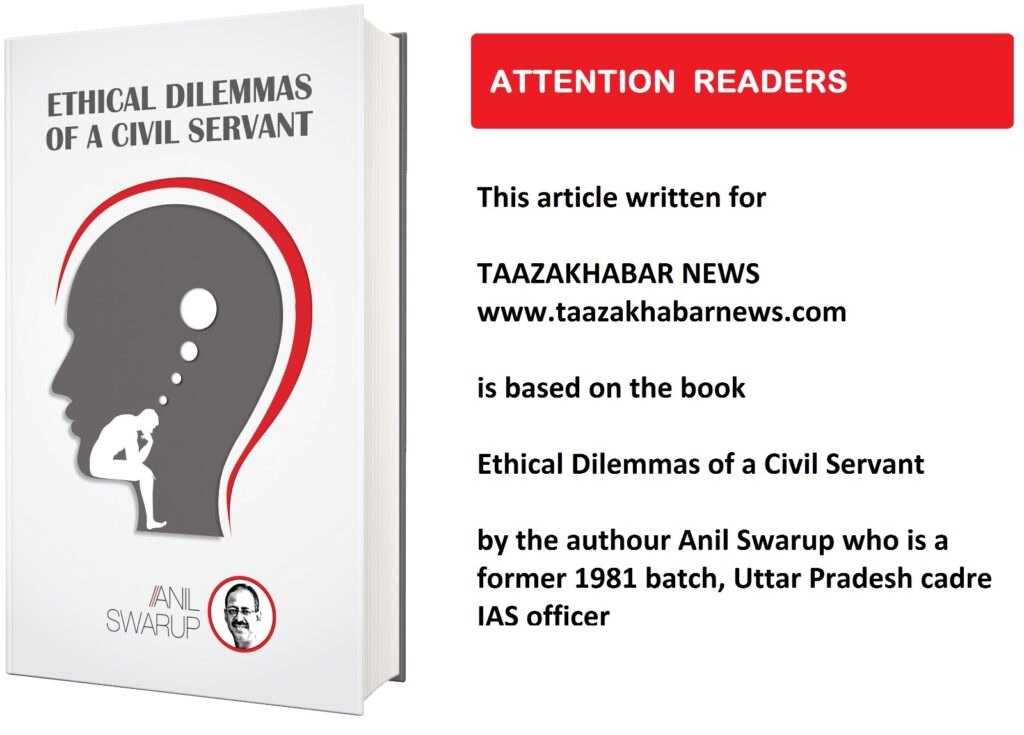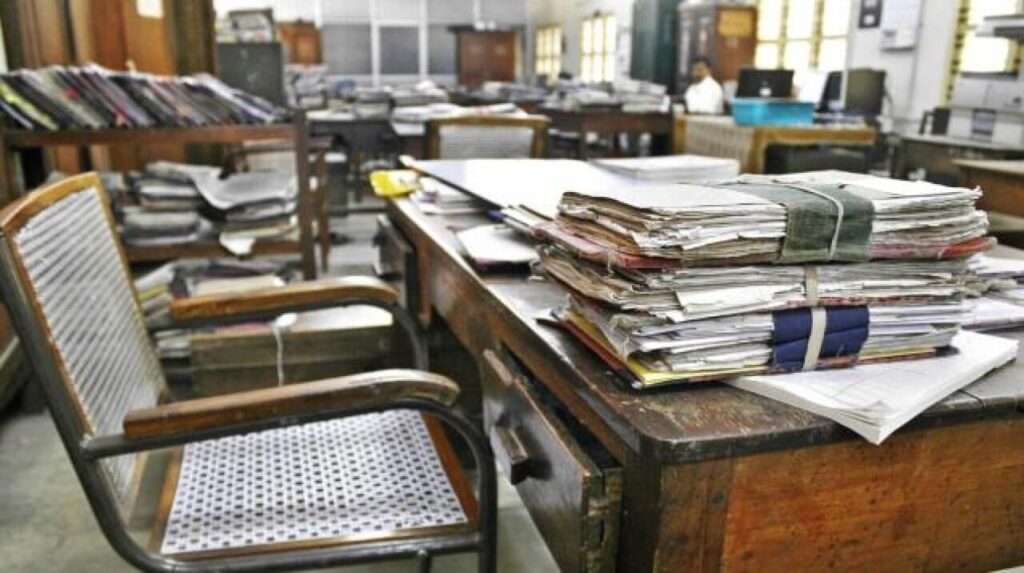
Lateral entry in the civil service has been in the news in the recent past. However, it is not the first time that lateral entry has been in the news. This is also not the first time that lateral entry into the civil service has taken place. Many, including Dr Manmohan Singh, Jairam Ramesh and others, have come into the civil service through the lateral route. Hence, why this noise? It is perhaps on account of the quantum that was being talked about or the manner in which this recruitment is likely to take place.
Why should lateral entry itself be a contentious issue though some may argue against it? The larger issue is if the “entry” happens not through the UPSC but an inappropriate “door”. UPSC’s conduct of examination has been above board. Hence, no one has ever doubted its credentials. There will be serious doubts and apprehensions if some other agency is chosen to select these entrants.

The bigger question, however, is whether it will improve governance. I am not sure that it will. So far, concerted or sustained effort has not been made to manage senior civil service in a comprehensive manner. The steps have by and large been ad-hoc in nature. The one relating to lateral recruitment is also on the same lines. A comprehensive approach will entail looking at the manner in which recruitment takes place, the in-service training, transfers, assessment of officers, incentives and disincentives by way of promotions and selection to critical posts. However, before considering these aspects, it would be necessary to determine what is required in an officer who goes on to occupy senior positions in the civil service. Right from the commencement of their careers, be it a Sub Divisional Magistrate, District Magistrate or Head of Department, an IAS officer occupies leadership positions. Each officer has to lead a team. Hence, the aim should be to select those who have leadership qualities or have the potential to become leaders. The purpose of training should also be to enable the officer to hone his leadership skills

As mentioned earlier, the conduct of UPSC in selecting officers is above board. However, those who get selected are primarily brilliant individuals. What is tested is written communication skills, some analytical skills and general awareness. The entrance tests assess examinees’ capability to “crack” the exam and various coaching institutes assist them in doing so. Much more is required in a leader. He should be able to build a team and carry it along with him by motivating those working with him. This entails exemplary actions and, on occasion, a few personal sacrifices as well. He has to be an accomplished communicator beyond the written one. He has to be ethical in his behaviour with a positive attitude. None of these are tested at the time of recruitment. There are tools available today to assess these and are being used in the private sector and elsewhere in the world.
It is difficult to mould an officer who has gone beyond a particular age. They are by then already “hard-boiled eggs”. Training assumes an important aspect in moulding these entrants into accomplished leaders. If these are to be moulded into accomplished leaders, the maximum age of entry has to be brought down to 28 as was the case a few decades ago.

Training has to be focussed on imparting skills and developing an attitude that would enable the officer to evolve as a leader. Thus, the emphasis should be on group activities rather than individual ones. It is during the training that the ethos and the purpose of the service will need to be drilled. Case studies-based methodology should be adopted to drive home ideas. Given their background, officers have knowledge and are capable of acquiring more of it. What is required is a transformation in their attitude as an officer and the necessity and utility of ethical behaviour. Periodic upgradation of skills and learning from each other should be an integral part of in-service training. This is imperative in the context of a fast-changing world both in terms of management and technology.
Senior officers who have done well in their careers can be asked to mentor officers who enter into the service for the first few years. Some beginning has been made in this regard but an institutional arrangement should be made. Mentoring is a key element in evolving the ethos of any organization.

Close monitoring of the inclination and aptitude of officers will help determine their postings and assignments. And, once assigned a task, he should be left to deliver. Frequent transfers are extremely debilitating but in some states, it has become a tool for harassing officers who don’t toe the line. Frequent transfers not only impact delivery adversely but responsibility cannot be fixed if the officer is unable to perform. This has led to the politicisation of bureaucracy. The politician is happy but governance suffers. Some states have experimented with Civil Services Board but it hasn’t really worked. This will have to be given serious thought. Postings should be based on integrity and competence and not on allegiance. This can easily be done for critical posts to begin with. An agency, like the UPSC, can be assigned to prepare a panel from which the government can select an officer.
Officers are evaluated annually through Annual Confidential Roles (ACR) and their promotions were based on these ACRs. However, the efficacy of ACRs has suffered consequences due to the Supreme Court order. These ACRs have ceased to be confidential as they have to be communicated to the officers. No officer wants to get embroiled with those dissatisfied with a grade. The 360 degree evaluation now in vogue is worse as it is opaque and has had a demoralising impact on the civil service. The concept has been adopted from the private sector but unlike the private sector, the one in practice in the government is perfunctory where assessment for empanelment is made on the basis of phone calls to peer group officers. No discussion is held with the officer who is being assessed and he is not even informed about the reason for not being empanelled.

It is a moot point whether lateral entry into the civil will harm governance per se. However, there are serious doubts about its contribution to improving governance. The need of the hour is to improve governance and this can happen only if the instruments that are used for policy making and delivery of services are managed in a professional manner. A comprehensive approach is required to address issues. Just tinkering, by getting a few so-called “experts” through lateral entry, will be of little help.

